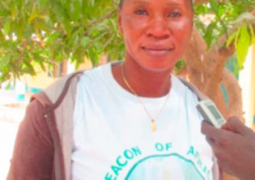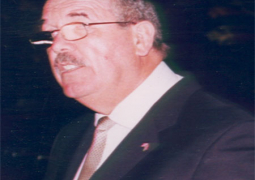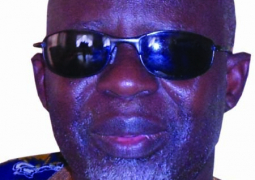
Abdou
Njie, Ebrima Kitim Jarju, Sheriffo Sonko, Hagi Suwaneh,Fanta Mballow, Karim
Touray, Yankuba Darboe and Mactarr Ceesay were on 29 January, 2020, arraigned
before Magistrate P. Sarr of the Kanifing Magistrates’ Court and charged on
three counts of unlawful assembly, rioting after proclamation and rioters
demolishing structures. She ordered they
be remanded at Mile 2 Prisons.
Prosecutors
alleged that the accused persons on 26 January, 2020, at Sting Corner and
diverse places around Old Jeshwang, in the Kanifing Municipality of the
Republic of The Gambia, after expiration
of the proclamation made by deputy superintendent of police, Alagie Jallow, in
the name of the president of the republic to disperse peacefully, disregarded
such a proclamation and continued to be so assembled riotously.
It
was also alleged that they jointly and unlawfully took part in an unlawful
assembly. The accused, according to the indictment, being riotously assembled
together, unlawfully destroyed The Gambia Technical Training Institute
students’ waiting shed by setting it on fire.
The
lead prosecutor, M. D. Mballow, told the court that they came under Section 5
of the CPC to have the case mentioned and transferred to the High Court. He
submitted that Section 5 of the CPC deals with jurisdiction and it has a
provision.
He
stated that in 2009, Chief Justice Savage, in exercise of his powers under
Section 5 of the CPC, established a Special Criminal Division. He then read
Legal Notice No. 3 to the court. He argued that Legal Notice No. 3 sets the
jurisdiction of the court to hear the case. He further submitted that count
three is a capital offence. He therefore applied to the court to transfer the
case to the Special Criminal Division. At this juncture, he referred to Section
2 (a) and Section 99 of the CPC to support his argument.
“The
court cannot try count three and therefore cannot grant bail to the accused
persons. I am applying for the court to remand the accused persons, pending the
hearing of the case at the Special Criminal Division,” he told the court.
Defence
Counsel Camara, in his deliberation, stated that since the court does not have
the jurisdiction to hear the case and questioned why they brought the accused
persons to court. He noted that the court has jurisdiction to hear the case,
adding that the court has all powers under Section 5 (2) to hear the case. He
then referred to Section 27 of the Criminal Procedure to support his argument.
“The
law that states that the court does not have the jurisdiction to hear the case
is not an act of parliament. The law created a division but it does not take
the jurisdiction of the court. It is practice direction,” he argued.
He
submitted further that capital offences are offences punishable by death and
the accused were not charged with capital offences. He said he disagreed with
the prosecutor that the court does not have the jurisdiction to hear the case.
He
adduced that the court has the jurisdiction to grant the accused persons bail,
noting that counts one and two are bailable offences. He told the court that
under Section 76 of the Criminal Code, count three is bailable. He cited
Section 99 of the CPC to support his argument. “If you have to transfer, you
should have the discretion to do so. Jurisdictions of court are guided
jealously. We submit that the court has jurisdiction to try the case and grant
bail,” he submitted.
Prosecutor
Mballow, on points of law, said that the defence asked why they were in court
if the court does not have the jurisdiction to hear the case. “It is lawful to
arraign the accused persons within 72 hours, and this is why we are in court,”
he replied. At this juncture, he cited Section 7 of the 1997 Constitution and
Legal Notice No. 3 to convince the court. He stated that the submission by the
defence that the court could grant bail was wrong.
“The
court does not have the jurisdiction to try count three, and I apply for the
case to be transferred to the Special Criminal Division,” Prosecutor Mballow
concluded.
In
her ruling, the presiding magistrate concurred with Prosecutor Mballow and
transferred the case to the Special Criminal Division and ordered that the
accused persons be remanded at Mile 2 Central Prisons.




